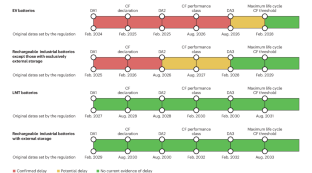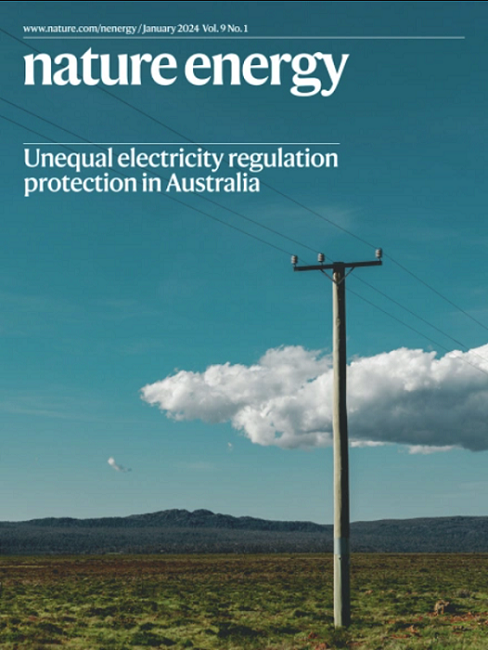The EU battery carbon footprint rules need urgent attention
IF 60.1
1区 材料科学
Q1 ENERGY & FUELS
引用次数: 0


欧盟的电池碳足迹规定需要紧急关注
欧盟电池法规2023/1542 (ref. 1)是一个里程碑式的框架,旨在确保欧盟市场上的电池是可持续的、安全和可回收的。这项规定对欧盟和全球电池行业都有广泛的影响。虽然主要针对行业合规,但该法规也直接影响到能源研究和开发社区,因为新电池需要符合其法律要求。从事电池电化学、性能、安全和设计以及可持续性、尽职调查、再利用和回收的人员需要将他们在资源可用性、价值链和回收方面的工作与法规要求保持一致,以确保进入欧洲市场。最终确定电动汽车电池CF声明授权法案的延迟正在导致电动汽车电池研究、供应和整个市场价值链的重大中断。公司和碳足迹从业者在是否继续执行授权法案草案方面面临相当大的不确定性。这种犹豫是因为草案仍在修订中,可能会有变化。
本文章由计算机程序翻译,如有差异,请以英文原文为准。
求助全文
约1分钟内获得全文
求助全文
来源期刊

Nature Energy
Energy-Energy Engineering and Power Technology
CiteScore
75.10
自引率
1.10%
发文量
193
期刊介绍:
Nature Energy is a monthly, online-only journal committed to showcasing the most impactful research on energy, covering everything from its generation and distribution to the societal implications of energy technologies and policies.
With a focus on exploring all facets of the ongoing energy discourse, Nature Energy delves into topics such as energy generation, storage, distribution, management, and the societal impacts of energy technologies and policies. Emphasizing studies that push the boundaries of knowledge and contribute to the development of next-generation solutions, the journal serves as a platform for the exchange of ideas among stakeholders at the forefront of the energy sector.
Maintaining the hallmark standards of the Nature brand, Nature Energy boasts a dedicated team of professional editors, a rigorous peer-review process, meticulous copy-editing and production, rapid publication times, and editorial independence.
In addition to original research articles, Nature Energy also publishes a range of content types, including Comments, Perspectives, Reviews, News & Views, Features, and Correspondence, covering a diverse array of disciplines relevant to the field of energy.
 求助内容:
求助内容: 应助结果提醒方式:
应助结果提醒方式:


